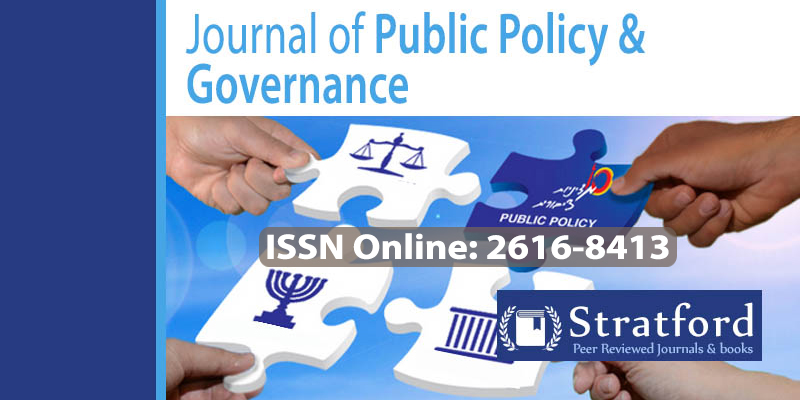Women Empowerment and Post-Conflict Reconstruction: Women for Women NGO in Rwanda
DOI:
https://doi.org/10.53819/81018102t2242Abstract
This study provides a comprehensive analysis of the impact of women's empowerment programs on post-conflict reconstruction in Rwanda, with a specific focus on the initiatives undertaken by the Women for Women NGO. Leveraging a multiple linear regression model, the research, which engaged 398 participants, offers valuable insights into the multifaceted relationship between women's empowerment and the post-conflict rebuilding process. One of the central findings of this study is the significant positive impact of women's educational attainment, which was observed to influence the reconstruction process impressively, with over 295.5% of participants displaying a beneficial effect. On the other hand, it underscores the detrimental influence of prolonged conflict durations, emphasizing the urgency of swift reconstruction efforts in conflict-affected regions. Moreover, the research reveals that income-generating activities for women play a pivotal role, contributing a substantial 56.9% of the overall reconstruction endeavors. These activities not only enhance the economic well-being of women but also drive progress within societies emerging from conflict, thereby underlining their transformative potential. Access to healthcare services is identified as a crucial factor, contributing to 52.7% of the overall societal rebuilding process. This emphasizes the imperative of investing in healthcare infrastructure and accessibility in conflict-affected regions, not only for the improved well-being of the population but also for driving substantial advancements in post-conflict societies. The study also underscores the immense significance of gender-based violence interventions integrated into women's empowerment programs. These interventions make a substantial positive contribution of 38.6% to the overall efforts in post-conflict reconstruction. By reducing violence and creating a safer environment, they empower women and contribute significantly to the broader process of societal rebuilding. The significance of this study lies in providing a comprehensive understanding of the multifaceted aspects of women's empowerment programs in post-conflict reconstruction, thus offering valuable guidance for policymakers and NGOs. It is intended to facilitate the promotion of sustainable peace and development in post-conflict regions, ensuring that the transformation experienced by beneficiaries of these programs becomes a beacon of hope for others in similar circumstances. In light of the research findings, this study strongly recommends prioritizing investments in women's education, enhancing income-generating activities, improving healthcare services, and integrating gender-based violence interventions into women's empowerment initiatives as crucial steps in promoting robust and stable post-conflict societies.
Keywords: Women's Empowerment Programs, Post-Conflict Reconstruction, Women for Women, Rwanda
References
Bakken, I. V., & Buhaug, H. (2021). Civil war and female empowerment. Journal of Conflict Resolution, 65(5), 982–1009.
Issifu, A. K. (2015). The role of African women in post-conflict peacebuilding: The case of Rwanda. The Journal of Pan African Studies, 8(9), 63–78.
Justino, P., Cardona, I., Mitchell, R., & Müller, C. (2012). Quantifying the Impact of Women’s Participation in Post-Conflict Economic Recovery. Opendocs.ids.ac.uk. https://opendocs.ids.ac.uk/opendocs/handle/20.500.12413/3221
Kfir, I. (2012). Security, Gender and Post-Conflict Reconstruction: The Need for a 'Woman Question' When Engaging in Reconstruction. Texas Journal of Women and the Law, 22(1), 71–112.
O’Reilly, M. (2015). Why women. Inclusive Security and Peaceful Societies, 10.
Percival, V., Richards, E., MacLean, T., & Theobald, S. (2014). Health systems and gender in post-conflict contexts: building back better? Conflict and Health, 8(1). https://doi.org/10.1186/1752-1505-8-19
Pospieszna, P. (2015). Democracy assistance and women’s political empowerment in post-conflict countries. Democratization, 22(7), 1250–1272.
Reyes, L. A. D., & Fattori, G. (2019). Microfinance as a means for women empowerment in the Colombian post conflict scenario: Transformational development or a tool for better managing poverty? Peace Human Rights Governance, 3(Peace Human Rights Governance 3/1), 127–161.
Rutherford, S., & Saleh, S. (2019). Rebuilding health post-conflict: case studies, reflections and a revised framework. Health Policy and Planning, 34(3), 230–245. https://doi.org/10.1093/heapol/czz018
Scanlon, H. (2019). Women in Post-Conflict Resolution and Reconstruction in Africa. Oxford Research Encyclopedia of African History. https://doi.org/10.1093/acrefore/9780190277734.013.561
Schnabel, A., & Tabyshalieva, A. (2012). Defying victimhood: Women and post-conflict peacebuilding.
Svobodová, K. (2020). Women in post-conflict reconstruction enhance security in Rwanda. Africa at LSE. https://blogs.lse.ac.uk/africaatlse/2020/04/02/women-in-post-conflict-reconstruction-enhance-security-rwanda/
Talbot, C., & Taylor, A. (2015). Partnership Paradox: The Post-Conflict Reconstruction of Liberia’s Education System. In ERIC. Education Support Program, Open Society Foundations. https://eric.ed.gov/?id=ED609800
True, J. (2013). Women, peace and security in post-conflict and peacebuilding contexts. NOREF Policy Brief, 1–7.
Women’s Economic Empowerment Would Yield Huge Dividends for Peacebuilding Efforts, Speakers Tell Security Council, Urging Greater Action to End Gender Barriers | UN Press. (2022). Press.un.org. https://press.un.org/en/2022/sc14825.doc.htm


